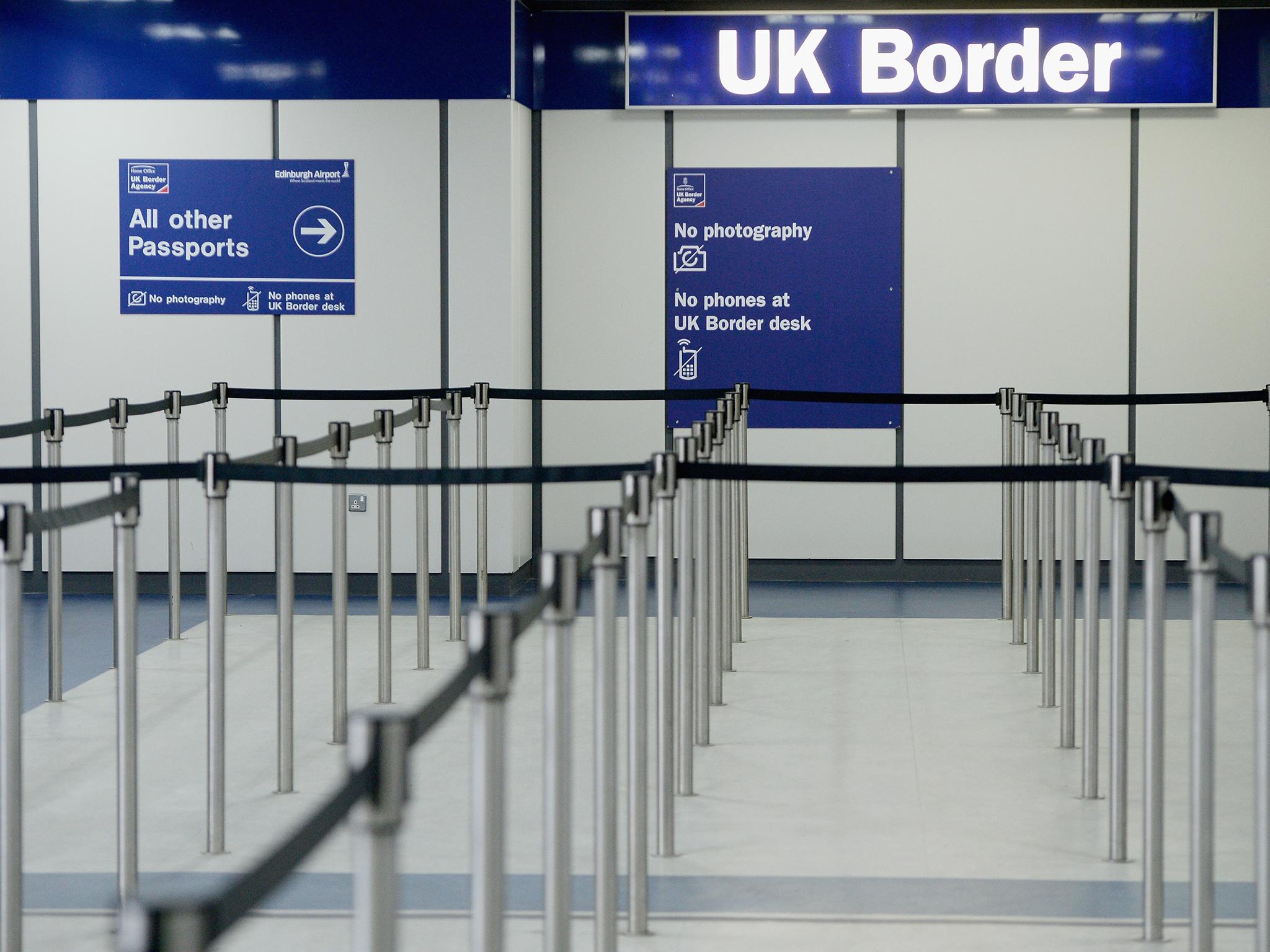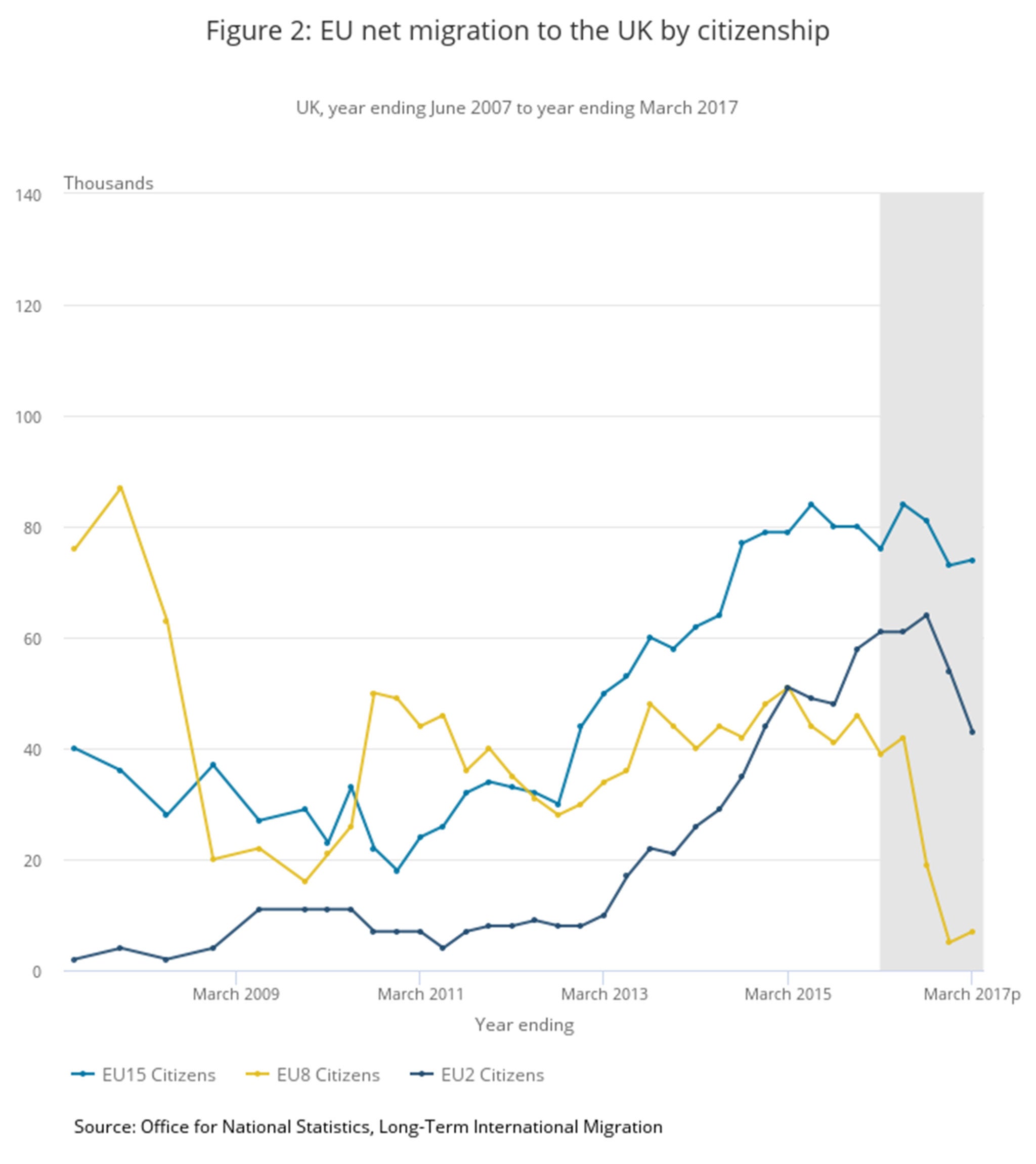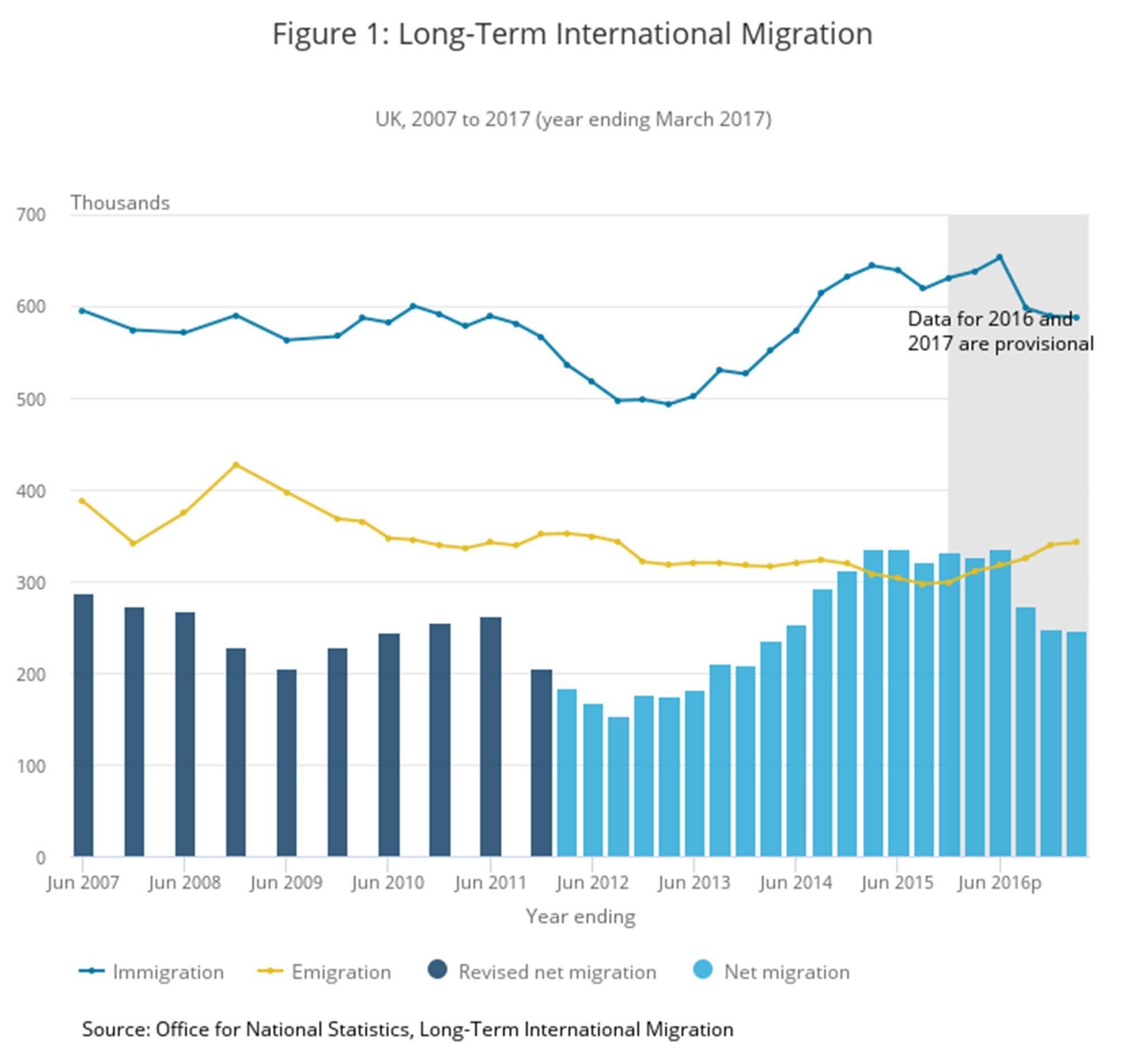UK immigration latest: Net migration falls to 246,000 in lead-up to Brexit as thousands of EU citizens leave
ONS says EU referendum result 'influencing people’s decision to migrate into and out of the UK'

Your support helps us to tell the story
From reproductive rights to climate change to Big Tech, The Independent is on the ground when the story is developing. Whether it's investigating the financials of Elon Musk's pro-Trump PAC or producing our latest documentary, 'The A Word', which shines a light on the American women fighting for reproductive rights, we know how important it is to parse out the facts from the messaging.
At such a critical moment in US history, we need reporters on the ground. Your donation allows us to keep sending journalists to speak to both sides of the story.
The Independent is trusted by Americans across the entire political spectrum. And unlike many other quality news outlets, we choose not to lock Americans out of our reporting and analysis with paywalls. We believe quality journalism should be available to everyone, paid for by those who can afford it.
Your support makes all the difference.Net migration to the UK has fallen by a quarter to 246,000 in a year as EU citizens flee Britain ahead of Brexit, new figures released by the Office for National Statistics (ONS) show.
Analysts said the referendum result was causing a dramatic decrease in migration from the EU, which has sparked warnings over “brain drain” from vital industries.
The number of people arriving to live long-term in Britain was down by 81,000 on the previous year, in what the ONS called a “statistically significant change”.
The figure shows net migration – the number of people moving to the UK minus those leaving it – at the lowest level for three years.
EU net migration was estimated at 127,000 in the 12 months to March, down 51,000 on the previous year, while the figure for the rest of the world was down by 14,000 to 179,000.
The ONS said the change was mostly caused by plummeting arrivals from the European Union, as the number of EU citizens leaving Britain rose by 33,000.
“The net migration change was driven by an increase in emigration, mainly for EU citizens and in particular EU8 citizens, and a decrease in immigration across all groups,” Nicola White, head of international migration statistics, added.

“These results indicate that the EU referendum result may be influencing people’s decision to migrate into and out of the UK, particularly EU and EU8 citizens. It is too early to tell if this is an indication of a long-term trend.”
Of the 51,000 non-British citizens who returned to their home countries, 44,000 were EU citizens – up 20,000 from the previous year – half of whom were from eight countries including Poland that joined the EU in 2004.
Diane Abbott, Labour’s Shadow Home Secretary, commenting on today’s migration statistics, said the Government’s migration policy was “a shambles”.
“Against all advice, Theresa May continues to insist in maintaining an arbitrary net migration target of under 100,000, which has never once been met,” she added.
“Labour will offer fair rules and reasonable management of migration; prioritising jobs, growth and prosperity, not bogus net migration targets.”
The Independent launched a campaign to Drop the Target earlier this year, winning the backing of MPs across the political spectrum who believe the goal will never be achieved and would damage the economy.
Stephen Clarke, a policy analyst at the Resolution Foundation, said changes revealed by Thursday’s statistics will have “significant implications for the UK’s labour market”.

“The fall in net migration was driven by those from Eastern Europe, with the most significant fall coming from nationals of the EU8 countries, including Poland and the Czech Republic,” he added.
“Net migration by this group was just 7,000 in the year to March, down from around 40,000 a year ago.”
Seamus Nevin, the head of employment and skills policy at the Institute of Directors, said “no one should celebrate” the stark figures.
He added: “Given unemployment is currently at its lowest level ever (4.5 per cent), without the 3 million EU citizens living here the UK would have an acute labour shortage.
“Signs that it is becoming a less attractive place to live and work are a concern.”
The Institute is among the groups warning that ongoing uncertainty over the rights of EU citizens already living in the UK is causing a “brain drain” of skilled workers from vital industries.
Of the 275,000 people who arrived to work, the majority had a definite job waiting and a smaller proportion – 87,000 – came looking for a job.
Meanwhile, the number of people moving abroad to work increased by 21,000 to 122,000.
Jonathan Portes, a professor of economics at King’s College London, said Brexit was having a “significant impact on migration flows even before we have left the EU” or changed policy.
He said separate statistics released by HMRC “show, once again, that ‘benefit tourism’ is a myth”, adding: “Less than 2 per cent of tax credit expenditure is paid to recently arrived EEA nationals.”
Long-term immigration to study – the second-highest driver migration – fell for all nationalities and most international students were non-EU citizens.
The ONS said the number of international students saw a “significant” decrease of 27,000 in the past year.
The Government announced a study of the impact of international students in the UK hours before the figures were released.
The Home Office said an assessment by independent advisers would look at the “social and economic impact” of students from abroad, while it also published exit checks data for the first time.
It has already banned more than 900 colleges from bringing in international students as part of a crackdown on “immigration abuse from poor quality institutions that were damaging the UK’s reputation as a provider of world-leading education”.
Amber Rudd claimed “genuine international students” would still be welcomed, emphasising that the UK was the world’s second most popular destination for study, but some analysts were concerned about falling numbers of international students.
Mr Nevin said the figure “should serve as a warning”, adding: “Higher education is a key sector of our economy and being open to the best students and workers from around the world is vital for the success of British business.”
A total of 16,211 people were also granted asylum, resettlement or other protection in the year to June.
Other figures released today showed that more than a quarter of births in England and Wales in 2016 were to women born outside the UK – the highest level on record.
While the fertility rate decreased overall, births to foreign mothers increased by 2 per cent, with most being Polish.
Nicola Haines, from the ONS, said the change was “due to foreign-born women making up an increasing share of the female population of childbearing age”.
Separate population figures for 2016 revealed that the number of Polish nationals living in the UK has passed the one million mark for the first time.
Statistics released on Thursday also showed that the UK’s economy is growing at half the rate of that in the Eurozone amid a Brexit-fuelled jump in inflation.
Join our commenting forum
Join thought-provoking conversations, follow other Independent readers and see their replies
Comments